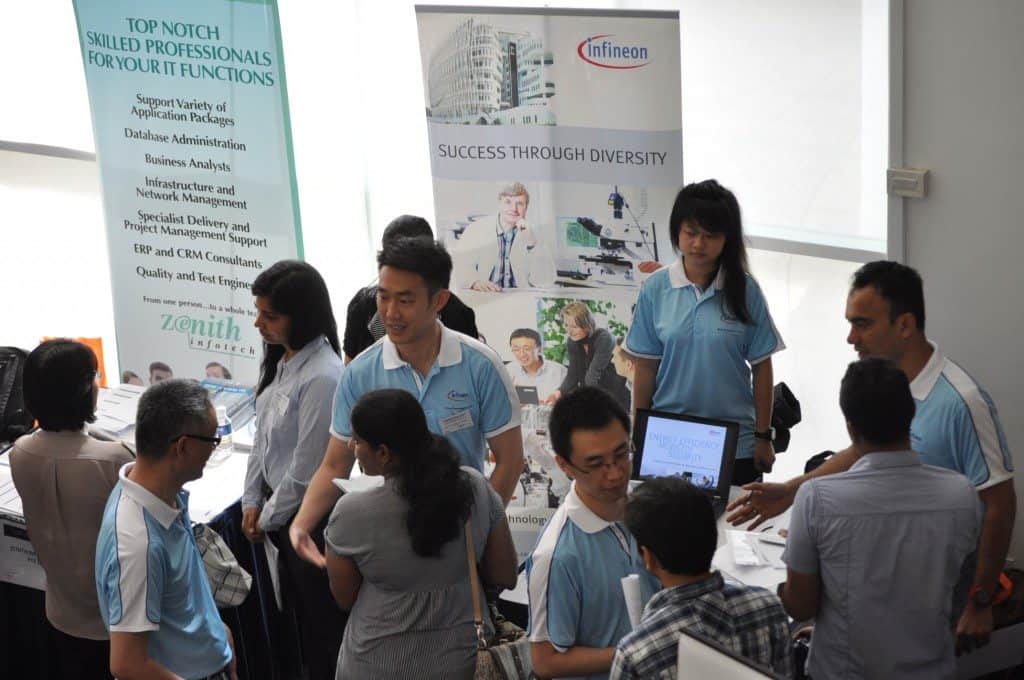For years, campus recruitment has been a hot topic among companies.
Companies have recognized the value of hiring highly educated young people straight out of university or college.
The challenge has always been how to engage with them while they are still in school.
When it comes to campus recruitment, many companies have stuck to the usual drill of setting up a few small info sessions on college campuses.
The basic premise is for students to network with recruiters and learn more about open positions.
While these serve as excellent informative stations for students to visit and gauge their interest, it doesn’t help SELL the company to students.
It doesn’t offer students any deep-seeded reason to connect with a corporation and choose them from the hundreds of other companies competing for their time.
With the current VUCA (Volatility, Uncertainty, Complexity, and Ambiguity) business climate, the war for the best talents has only intensified.
These recruitment methods no longer work, as companies are unable to differentiate themselves from the other employers to get the top talents.
Any recruitment model that relies purely on candidates making proactive applications for jobs will not be enough.
Companies must be able to attract candidates who might not have considered job search or applying to them and instead target to win them over other companies.
The campus recruitment system is broken. But, can it be fixed?
How can employers capture the attention and interest of the best and brightest new graduates or undergraduates?
“Gamifying” campus recruitment is one of the ways.
As Generation Z starts to enter the workforce, companies should change their recruitment strategy to engage further these generations who are born into a digitized economy and who are technology reliant, Christine Vasco, HR from Rohde & Schwarz shares with us.
“These generations are entrepreneurs and one who hope to invent something that changes the world. For Rohde & Schwarz, one of our means to connect with these students is through our yearly Engineering Competition”, she said.
“The Engineering Competition provides these students the space to be creative and innovative while they have the hands-on experiences in understanding our current technology and solution in the market.”
The case competitions, done by many other companies such as Deloitte, L’Oréal, aims to create a real connection between the students and the potential employers before they even talk about current career opportunities.
Deloitte’s Risk Intelligence Challenge Trophy (RICT) is an inter-university competition aimed at engaging students in experiential learning to promote a better appreciation of risk management in everyday life.
L’Oréal’s annual marketing competition, Brandstorm, has also included numerous touch points with L’Oréal’s brand managers.
It provide students a real marketing challenge and live like a marketer at L’Oréal during the competition.
Students would then be able to identify more with the employers, get an experience of what working in the organization would be like and get a deeper understanding of the companies’ culture, values, and vision.
This creates brand awareness among students while simultaneously differentiates your company on the recruiting market.
Getting the top talents
By engaging students better, companies now can differentiate who is the best and the brightest graduates in the group.
Vasco said, “Rohde & Schwarz can identify top talents who are keen on their niche industry through these competitions and can pinpoint students who show the ability to think out of the box and who are curious.”
For Brandstorm, in addition to the cash prize, L’Oréal recruits finalists into the company’s local management trainee program, and they go on to build international careers with them.
Preparing case competitions might require much effort, but it is worth the effort.
Not only companies can get an excellent chance to network with potential students, exposing them to the company, use the case competition in place of an interview, it also sends a message of how the company values are finding and getting the new recruits.
More and more, companies realize that successful campus recruiting does not just come from making information on company positions available.
Rather, the most successful recruiting teams are working to transcend the traditional roles of university recruiting and become an active part of campus life.
Are you ready to take on an active role to engage students further?






